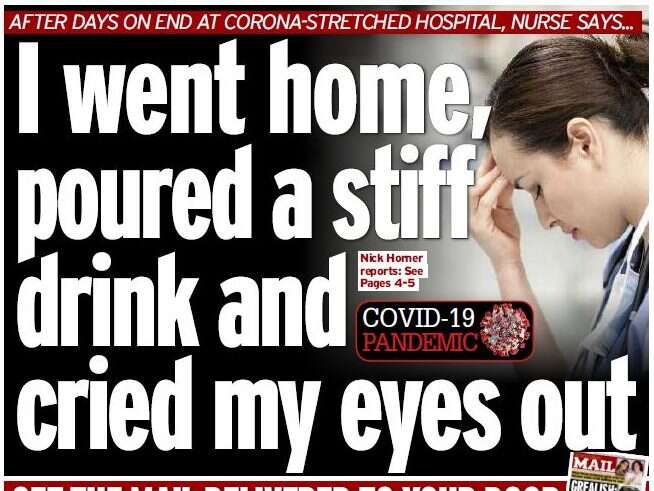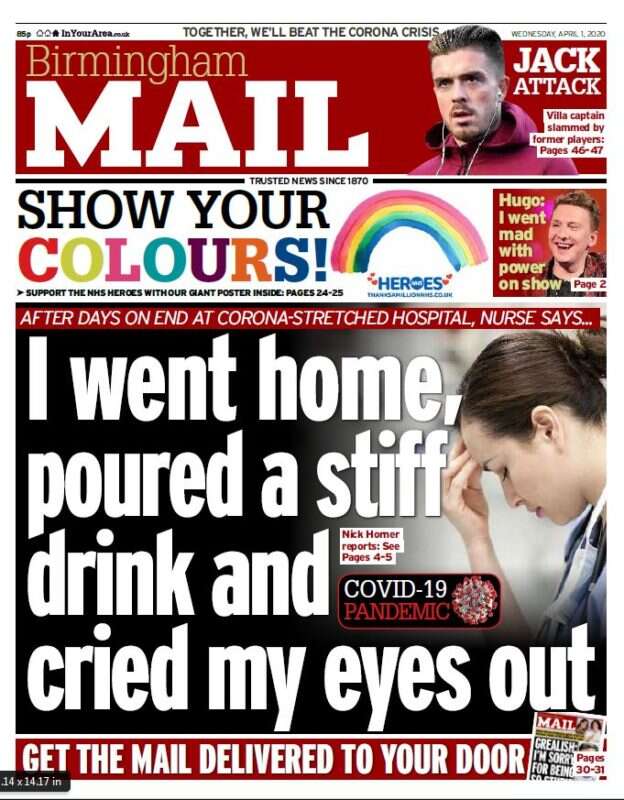
A furloughed regional journalist who lobbied his local MP to be allowed to continue reporting on the coronavirus crisis has said he is “down in the dumps” about not covering the biggest story of a generation.
Nick Horner has written for the Reach-owned Sutton Coldfield Observer for the past ten years, but production of his newspaper was suspended at the start of April as the coronavirus crisis caused advertising to collapse.
The pandemic began impacting Reach’s business from mid-March and it took action to mitigate the crisis by furloughing a fifth of its staff, equivalent to nearly 1,000 employees, on 6 April.
The publisher is topping up the salary of furloughed staff by a further ten per cent on top of the Government’s 80 per cent payments under its job retention scheme.
Staff at both national and local titles were affected, including at sport and video desks and journalists like Horner who work mainly on free newspapers.
Horner told Press Gazette the free Observer went from having 40 adverts in mid-March, to 18 adverts the following week, to just five or six.
He began lobbying Sutton Coldfield’s MP, Andrew Mitchell, in March to ask for more Government support for local newspapers as he foresaw the suspension of his title.
“When you see that sort of drop [in advertising] you can understand why my employers thought we’ve got to do something here because the income has just completely gone away,” he said.
“I noticed the Government had put a full page advert in the Birmingham Mail about staying at home but no such advert at my level, the weekly newspaper level.
“I said to Andrew Mitchell is there any chance the Government can help out and pay for advertising?
“We are putting the Government’s message out there so we’re really important to tell people what’s going on in their area.”
The Government has now run several advertising campaigns across many national and regional newspapers and pledged £35m in ad spend over the next three months – but this came too late to support titles like the Observer in print and hyperlocal titles have been left out.
Horner argued that stories like his interview with a nurse at Sutton Coldfield’s Good Hope Hospital about how “horrific” it was on the frontline play a valuable role.
“Local stories illustrating the national picture help the message hit home harder,” he said.

Nick Horner’s story on the front page of sister title the Birmingham Mail on 1 April
After he was furloughed on 7 April, Horner spent several days lobbying for a change to the rules, including by speaking again with Mitchell, so local journalists could still report online for their communities during this crisis, but with no success.
“We’re one of the few industries that are deemed as key workers but don’t get any funding,” Horner said.
“I’m effectively being paid [not to work] and I know this is a source of contention for people in that I’m being paid the same as other people who are working but because of the furlough scheme I’m banned, I can’t report on Sutton Coldfield.”
He also tweeted: “I want to work, I’m able to work at zero risk to others but I’m legally banned from doing so. Surely @RishiSunak this isn’t what the furlough scheme intended? I live in hope of help for a newspaper bailout or at least permission to work and help others.”
Instead Horner launched his own blog rounding up the biggest coronavirus stories and those that may have been missed, saying: “I’ve kind of created a job for myself, but this is such a big story I didn’t want to not [report on it].”
Otherwise, he said he has been feeling “a bit down in the dumps at home on furlough and not able to do the day job”.
But he received a boost when his nurse interview received recognition as part of Press Gazette’s Coronavirus Journalism Excellence Survey rounding up the best exclusive news coverage of the crisis so far.
“It really gave me a boost because it’s a mental strain on everyone working from home, but when you’re at home and you haven’t even got that work element to focus on [it’s even worse].”

Sutton Coldfield Observer reporter Nick Horner
As for the future, Horner remains both hopeful and fearful over whether his newspaper will return to report on a “vibrant town” with lots of issues at the fore.
“I fear the worst [but] I hope that the newspaper can restart again,” he said.
He went on: “I hope the paper continues but I have no idea what the plans are and I’m obviously acutely aware that we rely on advertising and the country’s businesses have shut down and we rely on those businesses to survive.
“If business is as affected as we think it will be and has already been, and it continues for months and months, then I do fear for the newspaper – but I hope there is some solution to be found.”
In a trading statement today, Reach said: “While in some areas we have recently seen a stabilisation in trends, circulation remains significantly below pre-Covid-19 levels and advertising remains very challenging and uncertain, with regional advertising particularly impacted.”
Email pged@pressgazette.co.uk to point out mistakes, provide story tips or send in a letter for publication on our "Letters Page" blog
